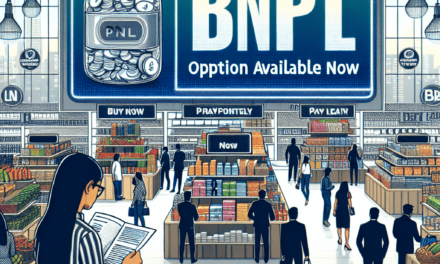“Emerging Markets Tumble: Trade-War Tensions Resurface, Shaking Global Confidence”
Introduction
Emerging markets are facing significant turbulence as renewed concerns over global trade wars have triggered a sharp decline in their financial stability. The escalation of trade tensions, particularly between major economies, has led to increased volatility and uncertainty, causing investors to reassess their risk exposure in these markets. This downturn is marked by depreciating currencies, falling stock prices, and capital outflows, as fears of protectionist policies and disrupted supply chains weigh heavily on economic prospects. The impact is being felt across various sectors, with countries heavily reliant on exports and foreign investment experiencing the most pronounced effects. As policymakers grapple with these challenges, the focus is on stabilizing economies and restoring investor confidence amid an increasingly complex global trade landscape.
Impact Of Trade-War Concerns On Emerging Market Economies
Emerging markets have recently experienced a significant downturn, driven by renewed concerns over trade wars that have sent ripples through global economies. The impact of these trade tensions is multifaceted, affecting various sectors and stakeholders within emerging market economies. As trade disputes escalate, they introduce a level of uncertainty that can destabilize financial markets, disrupt supply chains, and ultimately hinder economic growth. This uncertainty is particularly pronounced in emerging markets, which are often more vulnerable to external shocks due to their reliance on exports and foreign investment.
One of the primary ways in which trade-war concerns impact emerging markets is through currency volatility. As investors become wary of potential trade barriers and tariffs, they often seek safer assets, leading to capital outflows from emerging markets. This exodus of capital can result in significant depreciation of local currencies, making imports more expensive and exacerbating inflationary pressures. Consequently, central banks in these economies may be forced to raise interest rates to stabilize their currencies, which can further slow economic growth by increasing borrowing costs for businesses and consumers.
Moreover, trade tensions can directly affect the export-driven sectors of emerging market economies. Many of these countries rely heavily on exporting goods to larger economies, such as the United States and China. When trade barriers are erected, these exports become less competitive, leading to a decline in demand and a subsequent drop in production. This can have a cascading effect on employment and income levels, as industries that are heavily dependent on exports may be forced to cut jobs or reduce wages. In turn, this can dampen consumer spending, further slowing economic growth.
In addition to these immediate effects, the long-term implications of trade-war concerns on emerging markets are equally significant. Prolonged trade disputes can lead to a reconfiguration of global supply chains, as companies seek to mitigate risks by diversifying their production bases. While this may present opportunities for some emerging markets to attract new investment, it also poses challenges for those that are heavily integrated into existing supply chains. The need to adapt to new trade realities may require significant investment in infrastructure and workforce development, which can strain already limited resources.
Furthermore, the geopolitical dimensions of trade wars cannot be overlooked. Emerging markets often find themselves caught in the crossfire of larger economies’ disputes, which can complicate their diplomatic and economic relationships. Navigating these complexities requires careful balancing acts by policymakers, who must weigh the benefits of aligning with certain trade partners against the risks of alienating others. This delicate dance can influence not only economic policies but also broader foreign policy strategies.
In conclusion, the renewed concerns over trade wars have profound implications for emerging market economies. The immediate effects of currency volatility, disrupted exports, and inflationary pressures are compounded by the longer-term challenges of adapting to shifting global trade dynamics. As these economies grapple with the fallout, the importance of strategic policymaking and international cooperation becomes increasingly evident. By fostering resilience and adaptability, emerging markets can better navigate the uncertainties of the global trade landscape and position themselves for sustainable growth in the future.
Strategies For Investors During Emerging Market Volatility
Emerging markets have recently experienced significant turbulence, largely driven by renewed concerns over trade wars. This volatility has left many investors questioning their strategies and seeking guidance on how to navigate these uncertain waters. As trade tensions escalate, particularly between major economies such as the United States and China, the ripple effects are felt across emerging markets, which are often more vulnerable to global economic shifts. Consequently, investors must adopt strategies that not only mitigate risks but also capitalize on potential opportunities that arise during such periods of instability.
To begin with, diversification remains a cornerstone strategy for investors dealing with emerging market volatility. By spreading investments across various asset classes, sectors, and geographic regions, investors can reduce the impact of adverse movements in any single market. This approach helps in balancing the portfolio, as gains in one area can offset losses in another. Moreover, diversification into developed markets or stable sectors within emerging economies can provide a buffer against the heightened risks associated with trade disputes.
In addition to diversification, investors should consider focusing on quality assets within emerging markets. Companies with strong balance sheets, robust cash flows, and competitive advantages are more likely to withstand economic downturns and trade disruptions. These firms often have the resilience to navigate challenging environments, making them attractive options for investors seeking stability amid volatility. Furthermore, identifying sectors that are less exposed to trade tensions, such as domestic consumer goods or technology, can offer a degree of protection and potential growth.
Another strategy involves maintaining a long-term perspective. While short-term market fluctuations can be unsettling, it is crucial for investors to remember that emerging markets often offer substantial growth potential over the long haul. By staying committed to a well-thought-out investment plan and avoiding knee-jerk reactions to market swings, investors can better position themselves to benefit from the eventual recovery and growth of these markets. Patience and discipline are key virtues in navigating the ups and downs of emerging market investments.
Moreover, investors should remain informed and vigilant about the macroeconomic and geopolitical developments that influence emerging markets. Understanding the nuances of trade policies, currency fluctuations, and political changes can provide valuable insights into potential risks and opportunities. By staying abreast of these factors, investors can make more informed decisions and adjust their strategies accordingly. Engaging with financial advisors or leveraging research from reputable sources can further enhance an investor’s ability to navigate complex market dynamics.
Additionally, employing hedging strategies can be an effective way to manage risk during periods of heightened volatility. Instruments such as options, futures, or currency hedges can help protect against adverse price movements and currency devaluations. While these tools may not be suitable for all investors, they can offer an additional layer of security for those with the expertise and risk tolerance to utilize them effectively.
In conclusion, while emerging markets are currently facing significant challenges due to renewed trade-war concerns, investors can adopt several strategies to navigate this volatility. By diversifying their portfolios, focusing on quality assets, maintaining a long-term perspective, staying informed, and considering hedging options, investors can better manage risks and potentially capitalize on opportunities. As the global economic landscape continues to evolve, a proactive and informed approach will be essential for investors seeking to thrive in the dynamic environment of emerging markets.
Historical Analysis Of Trade Wars And Emerging Markets
The history of trade wars and their impact on emerging markets is a complex narrative that intertwines economic policies, geopolitical strategies, and market dynamics. As emerging markets plunge amid renewed trade-war concerns, it is essential to delve into historical precedents to understand the potential ramifications. Trade wars, characterized by countries imposing tariffs or other trade barriers on each other, have long been a tool for nations to protect domestic industries or retaliate against perceived unfair trade practices. However, these conflicts often have unintended consequences, particularly for emerging markets that are intricately linked to global supply chains.
Historically, trade wars have had a profound impact on emerging markets, which are typically more vulnerable to external shocks due to their reliance on exports and foreign investment. For instance, during the Smoot-Hawley Tariff Act of 1930, which raised U.S. tariffs on over 20,000 imported goods, the global economy was already reeling from the Great Depression. The act exacerbated the economic downturn, leading to a significant decline in international trade. Emerging markets, which were heavily dependent on exporting raw materials and agricultural products, suffered immensely as demand plummeted.
Fast forward to the late 20th century, the trade tensions between the United States and Japan in the 1980s serve as another illustrative example. While the primary conflict was between two developed nations, the ripple effects were felt across emerging markets in Asia. Countries like South Korea and Taiwan, which were part of the broader supply chain, experienced disruptions that affected their economic growth. This period highlighted how trade wars, even when not directly involving emerging markets, could still have significant indirect impacts.
In more recent history, the trade tensions between the United States and China have underscored the vulnerabilities of emerging markets. The trade war that began in 2018 saw both countries imposing tariffs on billions of dollars’ worth of goods. Emerging markets, particularly those in Asia and Latin America, found themselves caught in the crossfire. Many of these countries are integral parts of the global supply chain, providing raw materials and intermediate goods to China, which are then exported to the United States. The imposition of tariffs disrupted these supply chains, leading to economic slowdowns in several emerging economies.
Moreover, the uncertainty generated by trade wars often leads to volatility in financial markets, which can be particularly destabilizing for emerging markets. Investors, wary of potential economic downturns, may pull out their investments, leading to capital flight and currency depreciation. This was evident during the U.S.-China trade war, where several emerging market currencies experienced significant devaluation, further exacerbating economic challenges.
As we consider the current plunge in emerging markets amid renewed trade-war concerns, it is crucial to recognize the lessons from history. Trade wars, while often initiated with specific economic or political objectives, tend to have far-reaching consequences that extend beyond the primary actors. Emerging markets, due to their interconnectedness with the global economy, are particularly susceptible to these shocks. Policymakers in these regions must therefore navigate these turbulent waters with caution, seeking to diversify their economies and build resilience against external shocks. In conclusion, while trade wars may be a recurring feature of international relations, understanding their historical impact on emerging markets can provide valuable insights for mitigating future risks.
The Role Of Currency Fluctuations In Emerging Market Instability

Emerging markets have long been considered the engines of global economic growth, offering investors opportunities for high returns. However, these markets are not without their risks, and recent developments have underscored the volatility inherent in such investments. The renewed concerns over trade wars have sent shockwaves through emerging markets, leading to significant currency fluctuations that exacerbate their instability. Understanding the role of these currency fluctuations is crucial for comprehending the broader economic challenges faced by these nations.
To begin with, currency fluctuations in emerging markets are often more pronounced than in developed economies. This is due to several factors, including less mature financial systems, lower levels of foreign exchange reserves, and greater susceptibility to external shocks. When trade tensions rise, as they have with the recent escalation of trade wars, investors tend to seek safer assets, leading to capital outflows from emerging markets. This capital flight results in depreciating currencies, which can have a cascading effect on the economies of these countries.
Moreover, a depreciating currency can lead to increased inflationary pressures. As the value of a currency falls, the cost of imported goods rises, contributing to higher overall price levels. For countries that rely heavily on imports for essential goods and services, this can be particularly damaging. Inflation erodes purchasing power and can lead to a decrease in consumer spending, further slowing economic growth. In addition, central banks in emerging markets may be forced to raise interest rates to combat inflation, which can stifle investment and exacerbate economic slowdowns.
In addition to inflationary pressures, currency depreciation can also impact the debt dynamics of emerging markets. Many of these countries have significant amounts of debt denominated in foreign currencies, particularly the U.S. dollar. When their local currency depreciates, the cost of servicing this debt increases, placing additional strain on government finances. This can lead to a vicious cycle where governments are forced to cut spending or raise taxes to meet debt obligations, further dampening economic growth prospects.
Furthermore, the instability caused by currency fluctuations can undermine investor confidence. Investors are often wary of markets where exchange rates are volatile, as this adds an additional layer of risk to their investments. This lack of confidence can lead to reduced foreign direct investment, which is crucial for the development and modernization of emerging market economies. Without sufficient investment, these countries may struggle to build the infrastructure and industries needed to sustain long-term growth.
Despite these challenges, it is important to note that not all emerging markets are affected equally by currency fluctuations. Countries with strong economic fundamentals, such as low levels of debt, robust foreign exchange reserves, and diversified economies, are better positioned to weather the storm. Additionally, some nations have implemented policies to mitigate the impact of currency volatility, such as maintaining flexible exchange rate regimes or building up foreign currency reserves.
In conclusion, currency fluctuations play a significant role in the instability of emerging markets, particularly in the context of renewed trade-war concerns. These fluctuations can lead to inflationary pressures, exacerbate debt burdens, and undermine investor confidence, all of which pose significant challenges to economic growth. However, by understanding these dynamics and implementing sound economic policies, emerging markets can better navigate the turbulent waters of the global economy. As the world continues to grapple with trade tensions, the resilience of these markets will be tested, highlighting the importance of prudent economic management and international cooperation.
How Trade-War Fears Affect Global Supply Chains
The resurgence of trade-war concerns has once again cast a shadow over global markets, with emerging economies bearing the brunt of the uncertainty. As tensions escalate, the intricate web of global supply chains faces significant disruptions, threatening the stability and growth prospects of these markets. The interconnectedness of today’s global economy means that the ripple effects of trade disputes extend far beyond the immediate parties involved, impacting a wide array of industries and regions.
Emerging markets, often characterized by their rapid growth and increasing integration into the global economy, are particularly vulnerable to trade-war fears. These economies rely heavily on exports and foreign investments, making them susceptible to shifts in trade policies and tariffs. As major economies like the United States and China engage in trade disputes, emerging markets find themselves caught in the crossfire, facing reduced demand for their exports and increased volatility in their financial markets.
The impact on global supply chains is profound. Trade wars lead to the imposition of tariffs and other trade barriers, which increase the cost of goods and disrupt the flow of materials and products across borders. This, in turn, forces companies to reevaluate their supply chain strategies, often resulting in a shift away from traditional suppliers in emerging markets. Consequently, these markets experience a decline in manufacturing output and a slowdown in economic growth, as businesses grapple with higher costs and uncertainty.
Moreover, the uncertainty surrounding trade policies can deter investment in emerging markets. Investors, wary of potential losses, may choose to redirect their capital to more stable environments, further exacerbating the economic challenges faced by these regions. This reduction in investment can stifle innovation and hinder the development of critical infrastructure, which are essential for sustaining long-term growth.
In addition to economic impacts, trade-war fears can also have social and political ramifications in emerging markets. As economic conditions deteriorate, governments may face increased pressure to implement protectionist measures, which can lead to further isolation from the global economy. This inward turn can exacerbate existing social inequalities and fuel political instability, creating a vicious cycle that is difficult to break.
Despite these challenges, some emerging markets may find opportunities amidst the turmoil. As companies seek to diversify their supply chains to mitigate risks, new partnerships and trade routes may emerge. Countries that can offer competitive advantages, such as lower labor costs or strategic geographic locations, may attract new investments and strengthen their positions in the global supply chain network.
In conclusion, the renewed concerns over trade wars pose significant challenges to global supply chains, with emerging markets being particularly affected. The economic, social, and political implications of these disruptions are far-reaching, underscoring the need for strategic planning and international cooperation to navigate the complexities of the global trade landscape. As the world becomes increasingly interconnected, the ability to adapt to changing trade dynamics will be crucial for emerging markets to sustain their growth and development in the face of uncertainty.
Policy Responses To Trade-War Challenges In Emerging Markets
Emerging markets have recently experienced a significant downturn, largely attributed to renewed concerns over trade wars. As global economic tensions escalate, these markets find themselves at the forefront of the impact, grappling with the challenges posed by fluctuating trade policies and tariffs. In response, policymakers in these regions are actively seeking strategies to mitigate the adverse effects and stabilize their economies. Understanding the policy responses to these trade-war challenges is crucial for comprehending the broader implications on emerging markets.
To begin with, many emerging markets are focusing on diversifying their trade partnerships. By reducing dependency on a single major trading partner, these countries aim to cushion themselves against the volatility of trade disputes. For instance, nations in Southeast Asia are increasingly looking towards intra-regional trade agreements to bolster economic resilience. This shift not only helps in spreading risk but also fosters regional cooperation, which can be a stabilizing force in times of global uncertainty.
In addition to diversifying trade relationships, emerging markets are also investing in strengthening their domestic industries. By enhancing local production capabilities, these countries can reduce their reliance on imports, thereby insulating themselves from external trade shocks. Governments are implementing policies that encourage innovation and support small and medium-sized enterprises (SMEs), which are often the backbone of local economies. Such measures include providing tax incentives, improving access to financing, and investing in infrastructure development. These initiatives aim to create a more self-sufficient economic environment that can better withstand the pressures of international trade disputes.
Moreover, currency management has become a critical tool for policymakers in emerging markets. As trade tensions lead to fluctuations in currency values, central banks are taking proactive steps to stabilize their currencies. This often involves interventions in foreign exchange markets to prevent excessive volatility and maintain investor confidence. By ensuring a stable currency, these countries can protect their export competitiveness and avoid inflationary pressures that could arise from a depreciating currency.
Furthermore, some emerging markets are turning to multilateral institutions for support. Organizations such as the International Monetary Fund (IMF) and the World Bank offer financial assistance and policy advice to countries facing economic challenges. By engaging with these institutions, emerging markets can access resources and expertise that help them navigate the complexities of trade wars. This collaboration not only provides immediate relief but also contributes to long-term economic stability by promoting sound policy frameworks.
In addition to these economic measures, diplomatic efforts are also playing a crucial role in addressing trade-war challenges. Emerging markets are increasingly participating in international forums and negotiations to advocate for fair trade practices and dispute resolution mechanisms. By engaging in dialogue with major economies, these countries aim to de-escalate tensions and foster a more predictable global trading environment. Such diplomatic initiatives are essential for building trust and cooperation, which are vital for sustainable economic growth.
In conclusion, the policy responses of emerging markets to trade-war challenges are multifaceted and dynamic. By diversifying trade partnerships, strengthening domestic industries, managing currencies, seeking multilateral support, and engaging in diplomatic efforts, these countries are striving to mitigate the adverse effects of global trade tensions. As the landscape of international trade continues to evolve, the resilience and adaptability of emerging markets will be crucial in shaping their economic futures. Through strategic policy interventions, these nations can not only weather the current storm but also position themselves for long-term growth and prosperity.
Future Outlook: Can Emerging Markets Recover From Trade-War Shocks?
Emerging markets have recently experienced a significant downturn, largely attributed to the resurgence of trade-war tensions between major global economies. This development has raised concerns about the future trajectory of these markets, which have been pivotal in driving global economic growth over the past decade. As investors and policymakers grapple with the implications of these renewed tensions, the question arises: can emerging markets recover from the shocks induced by trade wars?
To understand the potential for recovery, it is essential to first examine the factors contributing to the current decline. Trade wars, characterized by the imposition of tariffs and other trade barriers, disrupt the flow of goods and services across borders. Emerging markets, which often rely heavily on exports, are particularly vulnerable to such disruptions. The recent escalation in trade-war rhetoric has led to increased volatility in financial markets, with investors pulling out capital in search of safer assets. This capital flight has exacerbated currency depreciation in several emerging economies, further straining their financial systems.
Moreover, the interconnectedness of global supply chains means that the impact of trade wars extends beyond direct trade partners. Emerging markets that serve as key nodes in these supply chains are experiencing reduced demand for their exports, leading to slower economic growth. Additionally, the uncertainty surrounding trade policies has deterred investment, as businesses adopt a wait-and-see approach before committing to new projects. This hesitancy stifles innovation and development, crucial components for the long-term growth of emerging markets.
Despite these challenges, there are reasons to remain cautiously optimistic about the recovery prospects of emerging markets. Historically, these economies have demonstrated resilience in the face of external shocks, often emerging stronger due to structural reforms and diversification efforts. In response to the current crisis, several emerging market governments are implementing measures to stabilize their economies. These include monetary policy adjustments, such as interest rate cuts, to stimulate domestic demand and fiscal policies aimed at supporting key industries.
Furthermore, the digital transformation sweeping across the globe presents new opportunities for emerging markets to diversify their economic activities. By investing in technology and innovation, these economies can reduce their reliance on traditional export sectors and tap into the growing digital economy. This shift not only enhances their resilience to external shocks but also positions them to benefit from the increasing demand for digital services worldwide.
In addition, regional cooperation and trade agreements can play a pivotal role in mitigating the adverse effects of global trade tensions. By strengthening intra-regional trade ties, emerging markets can reduce their dependence on volatile external markets and create a more stable economic environment. Initiatives such as the African Continental Free Trade Area and the Regional Comprehensive Economic Partnership in Asia exemplify efforts to bolster regional trade and economic integration.
Ultimately, the recovery of emerging markets from trade-war shocks will depend on a combination of domestic policy responses and global economic conditions. While the path to recovery may be fraught with challenges, the inherent dynamism and adaptability of these economies provide a foundation for optimism. As the global community navigates the complexities of trade relations, fostering an environment conducive to sustainable growth in emerging markets will be crucial. By embracing innovation, enhancing regional cooperation, and implementing sound economic policies, emerging markets can not only recover from current shocks but also chart a course toward a more resilient and prosperous future.
Q&A
1. **What are emerging markets?**
Emerging markets are nations with social or business activity in the process of rapid growth and industrialization. They are characterized by increasing economic development and typically have lower income levels compared to developed countries.
2. **What caused the plunge in emerging markets?**
The plunge in emerging markets was caused by renewed concerns over trade wars, which can lead to increased tariffs, disrupted supply chains, and reduced global trade, negatively impacting these economies.
3. **Which countries are typically considered emerging markets?**
Countries often considered emerging markets include China, India, Brazil, Russia, South Africa, and Mexico, among others.
4. **How do trade wars affect emerging markets?**
Trade wars can lead to increased tariffs and trade barriers, which can hurt exports from emerging markets, increase costs for imported goods, and create economic uncertainty, leading to market volatility.
5. **What sectors are most affected in emerging markets during trade tensions?**
Sectors most affected include manufacturing, agriculture, and technology, as these are heavily reliant on global trade and supply chains.
6. **What are the potential long-term impacts of trade wars on emerging markets?**
Long-term impacts can include slowed economic growth, reduced foreign investment, currency devaluation, and increased inflation, potentially leading to economic instability.
7. **How can emerging markets mitigate the impact of trade wars?**
Emerging markets can mitigate impacts by diversifying their economies, seeking new trade partnerships, investing in domestic industries, and implementing policies to stabilize their financial systems.
Conclusion
The renewed concerns over trade wars have led to a significant downturn in emerging markets, as investors react to the potential for increased tariffs and trade barriers that could disrupt global supply chains and economic growth. The uncertainty surrounding international trade policies has heightened risk aversion, prompting capital outflows from these markets and causing currency depreciations. This volatility underscores the vulnerability of emerging economies to external shocks and highlights the need for diversified economic strategies to mitigate the impact of global trade tensions. As the situation evolves, the resilience of these markets will depend on their ability to adapt to changing trade dynamics and maintain investor confidence.





